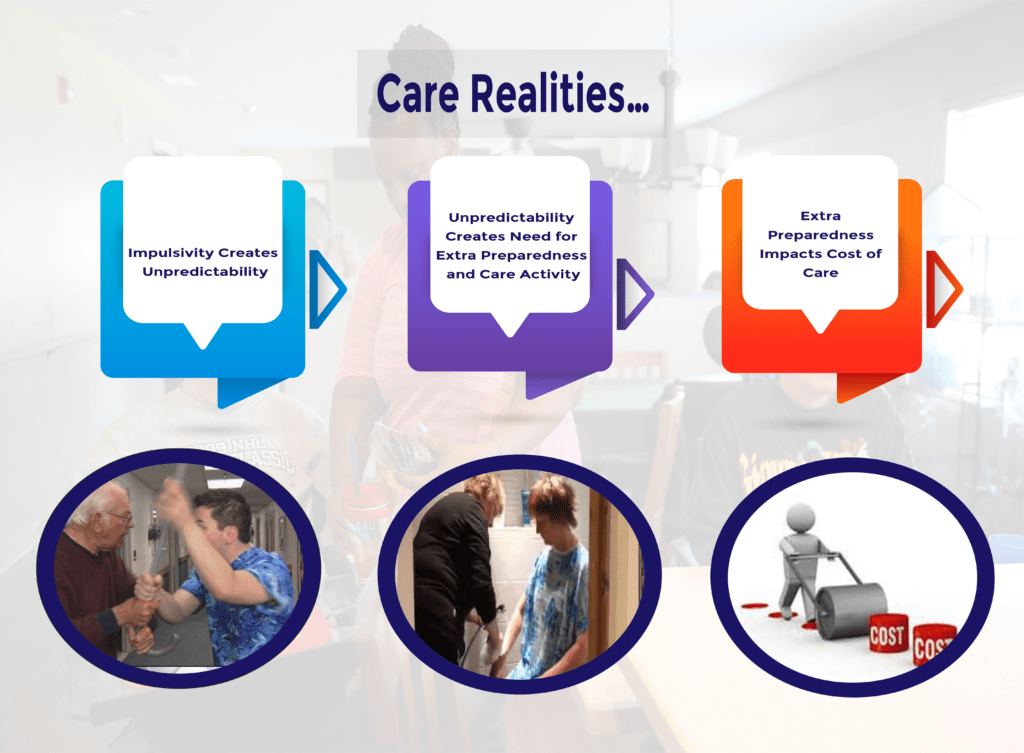

How the Re-Assessment Impacts CareImpacts Care
It is no secret that care costs money. In many cases a person rendering care gives up their entire life to do so. There is no time nor energy for side jobs or what we may refer to as “hustles” as their full attention is warranted.
In residential living situations, this is no different. While there is a shift change and multiple personnel are on hand to get the job done, certain special factors impact the cost. Often, these are unpredictable and sometimes require advance preparedness just in case of a change in circumstance.
Just like a military brigade prepares and compensates for what might come, caregiving does the same. Additionally, when reassessments occur, circumstances generally change.
An example is when we are told someone may be subjected to the kind of impulsive behavior that impacts the comfort and/or well-being of others. Do we wait until this occurs to have additional staff on hand to either help manage it or attend to other residents while the primary caregiver deals with it? No, we ensure the facility is prepared for all occurrences.
What makes this even more complicated? When the impulsivity is not tied to specific triggers. In behavioral cases, a residential care facility may be able to arrange certain fallback measures to ensure certain triggers are not activated. When these are unknown, or so varied that preparedness is more complicated, planning for them is next to impossible.
When a re-assessment occurs, it is likely complemented by much more than the historical or diagnostic data used to create the original assessment. Now the actual observations of this person come into play. More often than some are willing to admit, these observations impact how this person must be responsibly cared for.
This must impact the cost of care. If any special accommodation needs are ignored, the safety and well-being of the resident are jeopardized. After all, when gathering data at the initial assessment the term “occasional verbal tantrum” might have been used. Once a provider cares for this person it becomes obvious that the tantrum is not only verbal but physical and not occasional, but daily or multiple times per week.
Let’s be honest in these assessments. Yes, you may be up against an insurance adjuster who is not a clinical professional, and whose sole focus is the cost of care. As a care provider, you do not have this luxury. Regardless of financial probabilities, speak your truth and save yourself and the one you care for lots of potential grief down the road.
